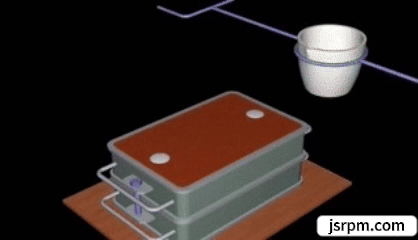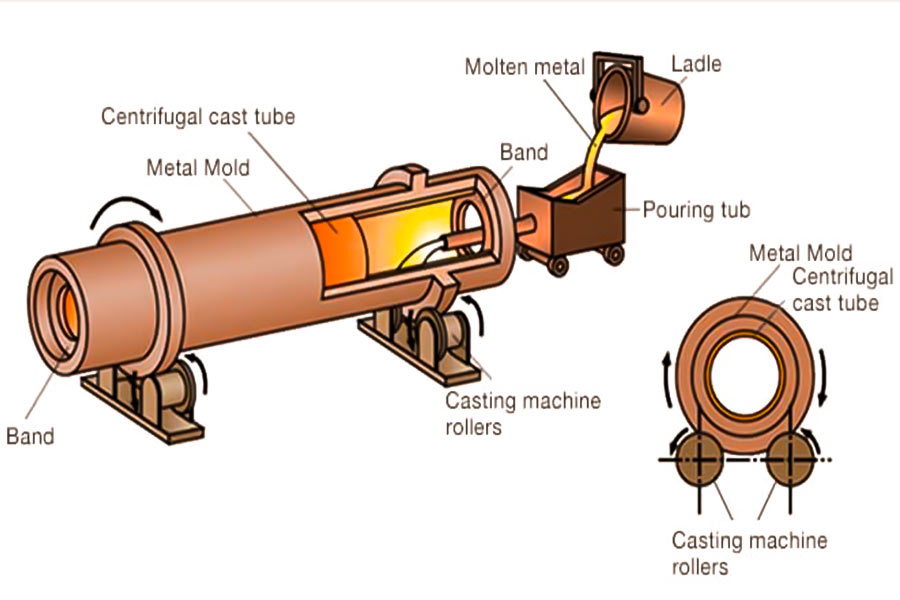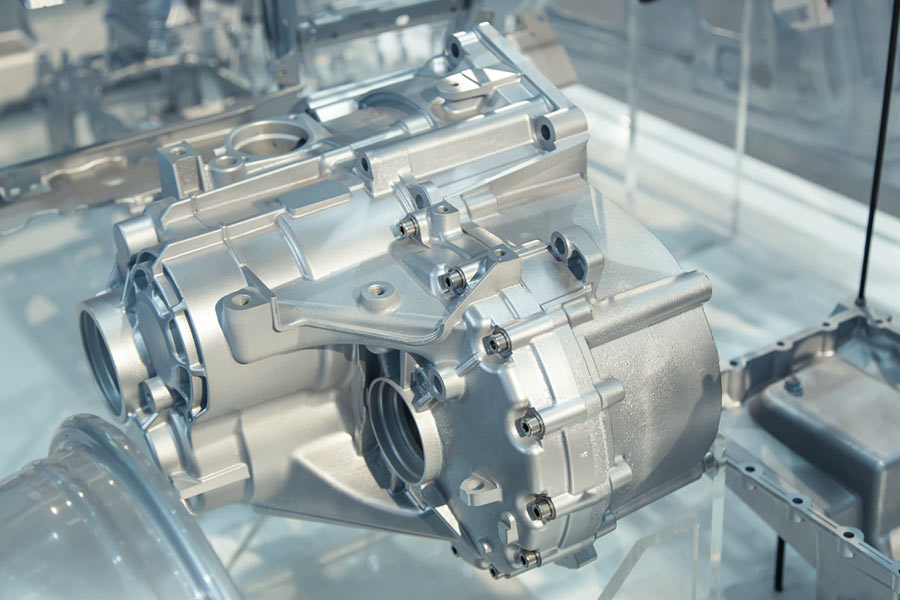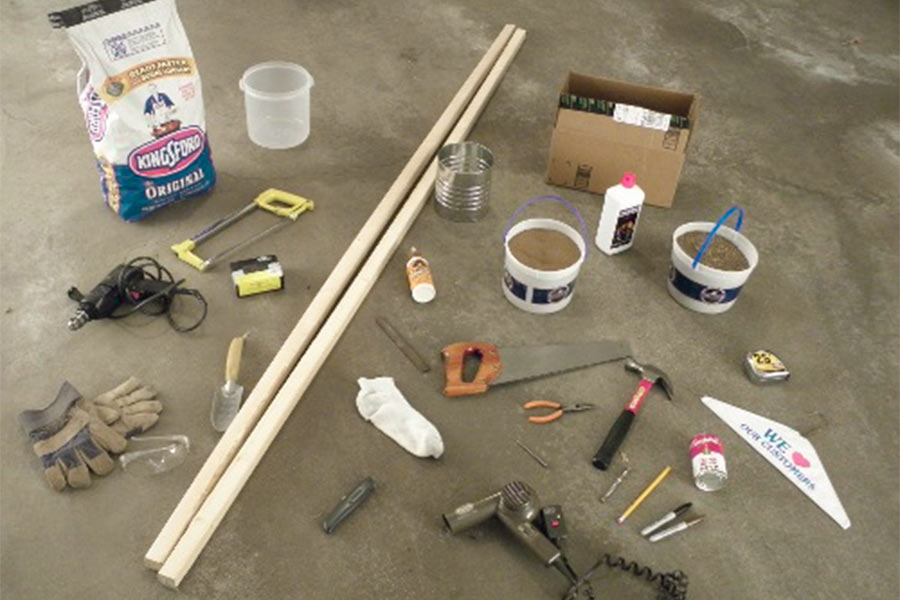Metal casting is an important manufacturing process used in various industries. Metal casting entails pouring molten metal into a mold that allows the metal to cool and solidify, thus creating the required part. Metal casting can produce metal parts with complex geometries, and metal casting is used in the automotive industry to produce engine parts and in aerospace to produce heat-resistant parts. Most of the products and equipment utilized in everyday life also come from the casting process.
Optimization of metal casting operations allows us to enhance productivity without compromising product quality. Along with the growth of technology, areas of application of metal casting continue expanding. Metal casting provides a stable solution to modern production.

What is metal casting?
Metal casting is a process of production of metal parts. It heats the metal to a very high temperature until it becomes liquid, then pours the liquid metal into a mold. The shape of the mold will be the shape of the final product. The metal becomes hard when it cools in the mold, at which point the molded piece can be removed.
This method can be used to produce metal parts of any size and shape. In the process of furnace metal casting, a furnace is utilized to heat the metal to the point where it melts. Metal casting is utilized in different applications, automobile parts, machinery parts and household items can be manufactured using this process. This process can be used for mass production since a mold can be used multiple times.

Which metals and alloys are used most commonly for casting?
1.Cast Iron
It is the most cost-saving and convenient casting material, mainly made up of gray cast iron, ductile iron and malleable iron:
- Gray cast iron has good vibration damping and wear resistance, broad application in the manufacturing of engine block, machine tool bed and other basic parts.
- Ductile cast iron has good strength and good toughness, widely applied in the manufacture of crankshafts, gear and other important mechanical parts.
- Ductile cast iron is mainly used in the manufacture of pipe fittings and connector components.
Cast iron material price is low, casting quality is good, the largest amount of casting metal in industrial production.
2.Cast steel
- Steel casting is mainly used in producing structural components to withstand enormous loads, such as railroad vehicle bogies, mining equipment parts.
- Alloy steel with chromium, nickel and other elements added to improve the performance for wear-resistant, corrosion-resistant special components.
- Cast steel's strength is considerably more than that of cast iron, although casting difficulty and cost are also higher correspondingly.
3.Aluminum alloy
- Aluminum alloys are the giants in the jet cooling light metal casting industry. Through the use of jet cooling and other new processes, high-performance aluminum alloy castings can be obtained.
- Representative casting aluminum alloys include aluminum-silicon alloys, aluminum-copper alloys, etc. Low density, high strength, corrosion resistance, etc., make them have wide applications in the fields of automobile engine cylinder head, aircraft structural parts, electronic equipment shells and so on. Especially with the growth of light-weighting requirement, the application range of aluminum alloy castings is expanding rapidly.
4.Copper alloy
It is famous for its excellent electrical and thermal conductivity. Cast copper alloys are mainly bronze and brass, which are used in the manufacture of bearings, gears and other wear parts, and various types of electrical connectors, heat exchangers, etc. Some special copper alloys also have good seawater corrosion resistance, is the ideal choice for ship building.
5.Magnesium alloy
It is currently the lightest metal structural material in engineering applications, and its density is only 2/3 that of aluminum. Cast magnesium alloy has a main application in aerospace applications, such as, aircraft hatch frames, missile housings and other weight-critical components. In recent years in the automobile, 3C products and other civilian areas of use is also increasing.
6.Nickel-based high-temperature alloys
It is the first-choice material for manufacturing gas turbine blades, rocket engine components and other parts for high-temperature working conditions. The alloy is formed through precision casting, and can maintain excellent mechanical properties under high-temperature conditions above 600℃.
What are the six main areas of application of metal casting?
1.Automotive industry
Engine block with cast iron casting, superior heat resistance of more than 400℃, and cast iron is cheap and durable. Aluminum alloy casting makes the transmission shell, which allows the car to be fuel-efficient.
Casting can produce complex parts in a single process, and the productivity is relatively high. For example, Volkswagen's engine block is sand casting, and 50 are produced per hour.
| Part type | Material | Performance advantages |
| Engine block | Grey cast iron | Compressive strength ≥200MPa. |
| Transmission housing | Aluminum alloy | 40% lighter in weight than steel. |
2.Aerospace
Components of the aircraft on the metal casting needs of technology are extremely stringent. The blades of the engine are cast in nickel-base alloy and can withstand high temperature of 1000 degrees. Landing gear made with titanium alloy cast, lightweight and resilient. Precision casting is able to create the blade with cooling orifices. Boeing 787 landing gear is investment cast and 30% lighter in weight than steel.
3.Medical Industry
Prosthetic joints require special materials. Titanium cast hip joints do not sensitize the body. Cobalt-chromium alloy crowns for dentistry are resistant to wear. Customized prosthetic shape is enabled through 3-D printing casting. Johnson & Johnson artificial knee joints produced by precision casting can endure up to 15 years.
4.Robot manufacturing
Robot components need to be lightweight and resilient. Robot arm made with magnesium alloy casting, action more adaptable. Shell cast with aluminum alloy, simple to produce streamlined. Die casting procedure can make the surface very smooth. Boston Dynamics' robot joints are cast in order to cope with repeated bending.
5.Industrial equipment
Heavy equipment requires strong components. Machine tool bases are cast in cast iron to efficiently dampen vibrations. Water pump housings are cast in bronze for corrosion protection. Disappearing mold casting is best used in large components. Sany Heavy Industry's excavator turntable, castings greater than 10 tons, for example.
6.Consumer electronics
Electronic goods have to be slender and elegant. Cell phone casing with magnesium alloy die casting, only 1 mm thick. Notebook casing with aluminum alloy die casting, very good heat dissipation. Die casting could make the surface mirror-like. Shell of a famous cell phone adopts die-casting technique, one-time mold without seams.
| Product type | Casting materials | Key indicators |
| Mobile phone frame | Magnesium aluminum alloy. | Wall thickness 0.6mm, flexural strength 150MPa. |
| Notebook shell | Pure aluminum. | Thermal conductivity 220W/m-K. |

What are the practical of application of small-scale aluminum casting in daily life?
1.Fabrication of kitchen utensils
Home workshops use alumalloy metal casting technology to produce durable cooking utensils. Aluminum ingot melted into molten state at 650 ℃ and injected into sand mold, forming the frying pan wall thickness consistently maintained at 3 mm. The process makes the pan conduct heat 20% quicker than usual aluminum pans, and the surface oxide layer resists acidic food corrosion well. Kitchenware factory utilizing this technology, pan lifespan extends from 2 years to 6 years.
2.Home decoration materials
Using aluminum casting to create personalized door handles and lamp hangers, first by 3D printing to make resin molds, then by pouring 700 ℃ aluminum liquid into molds. The aluminum curtain hooks from casting can withstand a weight of up to 5 kg, over 10 times stronger than plastic products. alumalloy metal casting technology makes the surface of the finished product show a fine metal texture, without the need for post-polishing processes.
3.Conversion of gardening tools
The aluminum spray cans and the pruning shears are cast by the gardening firm. Low pressure casting is utilized, where the aluminum liquid is injected into the mold under a pressure of 0.3MPa to impart structural strength to the spout, with a thickness as low as 1.2mm. The weight of the redesigned aluminum gardening shovel is reduced by 55%, which is extremely convenient for female use, and the single continuous usage time is improved from 30 minutes to 2 hours.
4.Vehicle parts repair
The automobile repair workshop recycles discarded aluminum to produce motorcycle pedals through casting. After heating the molten aluminum, 2% silicon is added to improve fluidity, and the casting tensile property is 150 MPa. A motorcycle club uses this method to refurbish the parts of outdated models, and the expense is reduced by 80% compared with the purchase of new parts.
5.Customized crafts
Hand studio cast aluminum badges and coins. Fine detail is first cut in wax molds and later cast by the lost wax method, which can duplicate details with 0.2mm accuracy. A personalized aluminum menu board for a coffee shop, the surface anodized dark green, scratch-resistance performance superior to the spray paint materials 3 times stronger.

What is the core role of metal casting in industrial equipment production?
1.Production of complex parts
Metal casting can produce intricate shapes of mechanical parts. knife mold for metal casting technology can produce high-precision tooling molds. They are applied to mass production of mechanical cutting tools on a large scale. The casting method is particularly suitable for the production of internal cavities or structured components.
Our company uses high-precision metal casting technology to produce machining tolerances of ±0.005mm for the production of high-strength cutting tools.
2.Production of long-life parts
Equipment and machines require multiple long-life metal parts. Wear-resistant parts are manufactured through the process of casting, and knife mold for metal casting produces molds with a long lifespan. These parts can withstand the high intensity operation of equipment and machines.
3.Cost benefit advantages
The process of casting is cheaper compared to other processing techniques. Mass production has very low unit costs. The use of raw materials is optimized by casting. We reduce machine manufacturers' cost control through the process of casting.
We optimize the process to help save between 20% and manufacturing cost, and our response mechanism helps us deliver 98% of orders on time. If a customer sends over a tool design file with STP or IGS format, JS engineers will complete proposal assessment and quotation within 24 hours.
4.Flexible material selection
The casting process is applicable to a wide range of metal materials. Different machine parts can be made from different materials. Cast iron is suitable for load-bearing components such as machine tool bases. Alloy steel is used for mechanical parts that require high strength. With more than 50 material options.
Our material library ranges from high-temperature-resistant alloys to lightweight composites, allowing us to select the optimal solution for the customer's equipment.
5.Dimensional flexibility
The process of casting allows for the production of mechanical parts in a wide range of sizes. Items as small as a few millimeters can be produced. Large machine housings can even be cast in one casting. This capability responds to the varied needs of mechanical engineering.
Our metal casting enables customized innovations. We have created special tool components for an automation device project, using knife mold technology to reduce the 15 steps of traditional forging to three. This case illustrates that combining advanced mold and casting processes can significantly improve equipment manufacturing efficiency. Want to know about the specific implementation of the user, you can directly contact the JS professional and technical team.
How do the new technologies impact the classical metal casting applications?
1.3D printing mold to revolutionize the manufacturing process
3D printing technology to reduce the hurdle of mold making. Typical users use desktop-level light-curing 3D printer to print molds for casting, the price from $5,000 to $200. diy metal casting aluminum fans apply this process to print customized auto components, the development cycle from four weeks shortened to three days.
2.Intelligent temperature control to enhance molten aluminum precision
The miniature furnace is equipped with a built-in temperature chip. Temperature drift range of molten aluminum from ±50℃ decreased to ±3℃, porosity dropped below 2%. For casting aluminum kitchenware in home workshops, qualified rate of finished product increased from 60% to 90%.
3.Open source design to accelerate product iteration
Online platform for sharing casting model files. A team of designers used the open-source aluminum drawings and finished casting the garden fountain decorative parts in three days. Reuse of design solutions increased development efficiency by 70%.
4.Scrap aluminum recycling technology to reduce costs
Home smelting units to process cans and other scraps. Aluminum recycling rate of 95%, 80% material cost savings. Recycled aluminum cast bicycle parts by hobby users, cost of one control piece below $5.
5.Simulation software forecasting casting defect
Computer simulation for reduction of process parameters. As a result of application of students of casting simulation software, frequency of aluminum gear blanks with defect trachoma decreased from 40% to 8%. Virtual testing cuts trial and error by 75% by means of physical testing.
Comparison between traditional casting and most recent technology
| Indicators | Traditional casting | New technology (3D printing/smart casting) |
| Dimensional accuracy | ±0.1mm | ±0.02mm |
| Ability to realize complex structures | Limited | Moldable honeycomb / skeleton structures |
| Mould making cycle time | 2-4 weeks | 6-48 hours |
| Material utilization rate | 60-70% | 85-95% |
| Temperature fluctuation range | ±50℃ | ±3℃ |
| Production cost (small lot) | $300 /pc | $50 /pc |
At the metal casting company where you work, what areas most reflect technical competitiveness?
As a JS foundry engineer, the strongest technological competitiveness is represented in the following aspects:
1.Industrial robot core component manufacturing capacity
We utilize 5-axis linked CNC machining technology, capable of machining complex curved surfaces and structural shapes. The group realized the mass production of robot joint parts for an automotive production line in 2023, with dimensional tolerances within ±0.005mm.
2.Multi-material composite machining solutions
We have established more than 30 mixed processing production lines of metal and engineering plastics. Titanium alloy and carbon fiber composite structure components manufactured for medical device clients realized zero-defect standard by three process validations in the last year.
3.Automated assembly system integration
Our vision positioning module of the team has been applied to 3C electronics industry, and the error rate of a cell phone components assembly line has been lowered from 1.2% to 0.15%.
4.Rapid response manufacturing system
Through the support of a cloud-based document review system and intelligent scheduling algorithms, we have achieved 98% of rush orders to start production within 48 hours in the last quarter. One of the aerospace customers' projects of aluminum alloy bracket was done in just 5 working days from drawing confirmation to first delivery.
5.Application of sustainable manufacturing technology
The mentioned closed-loop coolant recycling system which started production last year reduced the consumable cost in the precision machining process by 18%, while industrial waste liquid emissions were reduced by 35%.
Summary
Metal casting technology is one of the foundations of modern industry. The technology promotes the evolution of several industries. Casting has many advantages in the process. Various metal materials can be processed, and the process can create products with complex shapes. We improve the precision of casting by improving the technology, and equipment used reduces the energy consumption in production and decreases the product defects.
Metal casting technology still innovates to be a strong guarantee for the development of industries, and the technology has high value in the new era.
Disclaimer
The content on this page is for general reference only. JS Series makes no express or implied warranties regarding the accuracy, timeliness, or applicability of the information provided. Users should not assume that the product specifications, technical parameters, performance indicators, or quality commitments of third-party suppliers are completely consistent with the content displayed on this platform. The specific design feature, material standards, and process requirements of the product should be based on the actual order agreement. It is recommended that the purchaser proactively request a formal quotation and verify product details before the transaction. For further confirmation, please contact our customer service team for professional support.
JS Team
JS is an industry leading provider of customized manufacturing services, dedicated to providing customers with high-precision and high-efficiency one-stop manufacturing solutions. With over 20 years of industry experience, we have successfully provided professional CNC machining, sheet metal manufacturing, 3D printing, injection molding, metal stamping and other services to more than 5000 enterprises, covering multiple fields such as aerospace, medical, automotive, electronics, etc.
We have a modern factory certified with ISO 9001:2015, equipped with over 100 advanced five axis machining centers to ensure that every product meets the highest quality standards. Our service network covers over 150 countries worldwide, providing 24-hour rapid response for both small-scale trial production and large-scale production, ensuring efficient progress of your project.
Choosing JS Team means choosing manufacturing partners with excellent quality, precise delivery, and trustworthiness.
For more information, please visit the official website: jsrpm.com
FAQs
1.What are the advantages of casting process?
Able to manufacture complex shaped parts, suitable for mass production, high material utilization, lower cost, can choose a variety of metals (e.g., iron, aluminum, copper, etc.), the process is matured and stable, suitable for producing bulky parts, and mechanical properties of products are superb.
2.Can casting produce complex parts?
Can produce complex parts, can be cast in one piece with hollow cavities, thin-walled curved components. By using 3D printing sand mold and simulation optimization technology, we can make precision parts such as turbine blades with multi-channels.
3.Is aluminum alloy suitable for casting?
Aluminum alloys are suitable for casting because they possess excellent fluidity and low molten shrinkage, which allow precise molding of complex structures. The alloy is corrosion-resistance and lightweight, and therefore best suited for casting applications such as auto engine components and aerospace components.
4.What is the future trend of casting?
It will develop into intelligence and digitalization, combining 3D printing and AI to optimize the process. Green manufacturing through energy saving and emission reduction and utilization of renewable materials to achieve sustainability. Precision casting technology to enhance the complex parts qualified rate above 98%, to promote upgrading of high-end equipment manufacturing.
Resources






